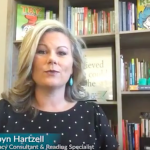The Art of Giving Feedback

Feedback is a necessary component of growth, but giving feedback that is constructive and spurs reflection takes an understanding of the factors that impact how it is received. Constructive feedback must be useful to the one receiving it. What makes it useful depends on each individual person. To ensure that feedback is useful, there are three critical components that coaches must consider when giving feedback to teachers:
- Relationships
The relationship between the coach and teacher heavily influences the way feedback is given and received. If the relationship is new or not well-established, it may be best for feedback to be given face-to-face or over the phone. Written feedback can often be misconstrued if a relationship has not been built. When working with new clients, I also use questions as a primary tool in debriefing conversations because I want to learn more about the person and their decision making processes. I may start feedback sessions with phrases such as…”It looked like you were trying to …..” or “I noticed…” then follow this with questions that will allow the teacher to share her thinking. I may keep my suggestions to resources that might be helpful. As the relationship grows, the questions may become more probing and the suggestions more pointed. - Mindset
A teacher’s mindset will greatly affect whether or not feedback is even useful. In her groundbreaking book Mindset (2006), Carol Dweck notes people with a fixed mindset tended to show little interest in feedback that offered opportunity for learning; rather they responded to feedback that focused on their abilities. This is important for coaches to understand because teachers who are in this mindset will need to work from their strengths. Coaches will need to be on the lookout for those glimmers of what can be built upon rather than focusing on suggestions for improvement right away. A feedback conversation may begin like this ….”It is clear that you know how to _____ because ____.” Acknowledging what the teacher is able to do can be the starting point for giving feedback on how they might use that ability in a new situation or to meet a goal.
- Readiness
Whether a person is ready to reflect on their practices and make changes will also affect the type of feedback that is needed and if it will be applied. Teachers who do not routinely reflect on their practices may not be aware of a need to change anything. Feedback for these teachers may be more geared toward specific suggestions of activities for them to try under certain circumstances. “To avoid calling on the same students, try putting their names in a cup and randomly drawing a name when you ask a question.” The goal of the feedback with these teachers is to help them become aware of places that need strengthening and build a toolbox of strategies to use. With teachers who are more reflective, we want our feedback to encourage this. Rather than offering specific strategies, we may suggest resources or learning opportunities that the teacher could use to develop her own strategies. For example, with a more reflective teacher, the conversation may sound something like this: “You mentioned that you are trying to find new ways to ensure all students are responding in class. There are some great ideas for this at (website, etc.).”
Every person has individual needs that must be considered if feedback is to be useful. A coach who takes into account the relationship, mindset, and readiness of the individual can better offer feedback that both supports and challenges new learning in ways that will actually be applied.

Robyn Hartzell has served in education since 1998 and has experience in a variety of roles: teacher, instructional coach, interventionist, trainer, consultant, and program coordinator at the campus and regional levels. Currently, she works as an independent consultant and coach promoting effective instructional and leadership practices and championing the need for quality professional learning. Robyn takes privilege in coaching professionals in their craft and is passionate about helping organizations develop leaders who make a lasting, positive impact on the programs and people they serve.
Be sure to follow Robyn on Twitter @robynhartzellpd and check out her website at www.hartzellpd.com



